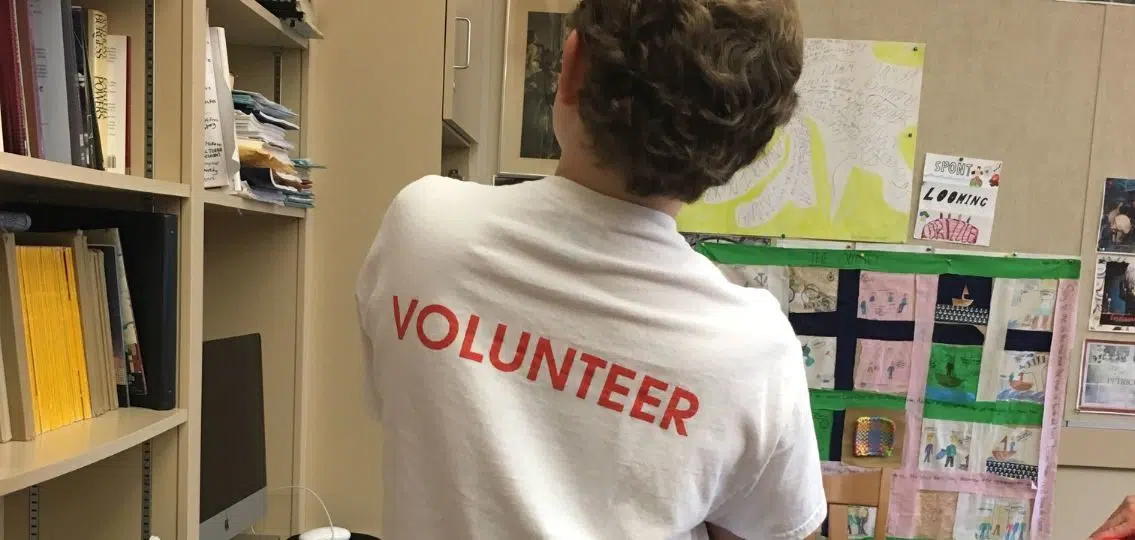When my son was 13 years old, I saw him transform from a socially awkward teenager into a compassionate leader among his peers. I credit a lot of his growth to his positive experience with volunteer service, which helped him realize that when we help others, we also help ourselves.
My son volunteered with an organization called CelebrateU, but people can benefit from volunteer service practically anywhere. This particular organization hosts birthday parties for children living in domestic violence shelters. They made him a team leader assigned to one particular shelter and put him in charge of parties from beginning to end. Before the parties, he recruited classmates to join him, asked local vendors for donations, and coordinated all of the logistics for each party. During the parties, he worked patiently with children on craft projects and helped them decorate a banner. When the parties were over, he was in charge of clean-up.
Following through with his leadership responsibilities took courage and initiative and helped my son develop his executive functioning skills. The confidence and mastery he gained were immeasurable, and he enjoyed creating special memories for children going through difficult times. The sense of accomplishment and pride in what he was doing motivated him to continue his service with CelebrateU for several years.
But then, the pandemic forced the organization to shut its programs down. They didn’t need my son’s volunteer service anymore.
Now, we’re in the midst of a mental health crisis among adolescents, one which began before the pandemic but was exacerbated by two years of social isolation, academic disruption, stress, anxiety, and loneliness.
We’re all wondering, what can we do to help the mental health of our teens?
Community Service, Kindness, and Mental Health
According to research conducted by sociologists at the University of Wisconsin, teens report that volunteerism has a positive effect on their self-concept and confidence. Volunteering provides an important social opportunity, something that many teens desperately crave.
I saw evidence of those findings when my son and my other kids volunteered before the pandemic. Volunteering in the community encouraged my teens to be sensitive to the needs of others and find meaningful ways to give back through acts of kindness. They felt good about what they were doing and good about themselves.
The early days of the pandemic made it difficult for my family to find ways to give back when we couldn’t volunteer in the community as we normally did. I worried about my kids’ mental health.
Then, something wonderful happened. Day by day, I watched my teens emerge from their sadness with a new resolve to make the best of their situation by caring deeply about others.
We couldn’t volunteer with our usual organizations so we found other ways to be of service. We engaged in “kitchen table kindness” activities at home. We baked cookies for first responders, wrote letters to isolated seniors, recorded birthday tributes for friends whose celebrations were canceled, made fleece blankets for rescue animals, and sent pizzas to the ICU staff at a local hospital. We found small but meaningful ways to help. Those small actions also made us feel better because they gave us purpose and provided light during some very dark days.
People who are kind and compassionate experience improved well-being and happiness, often with a rush of endorphins and positive emotions, a response known as a “helper’s high.”
The research makes this clear, and we know this to be true from our own experience. By every measure, people who volunteer are happier, healthier, more connected, and less lonely; and the benefits for teens are even more pronounced.
If you’ve ever felt a deep personal satisfaction from helping another person, easing their burden, and making them smile, you understand this feeling. That sense of connection to others, of being needed and appreciated, of self-efficacy and confidence—they’re all priceless gifts; ones you want your teens to experience and internalize. Volunteer service can help your teens develop tools they’ll use and appreciate in these challenging days, and their kindness in action helps us all feel a little better now and in the years ahead.




